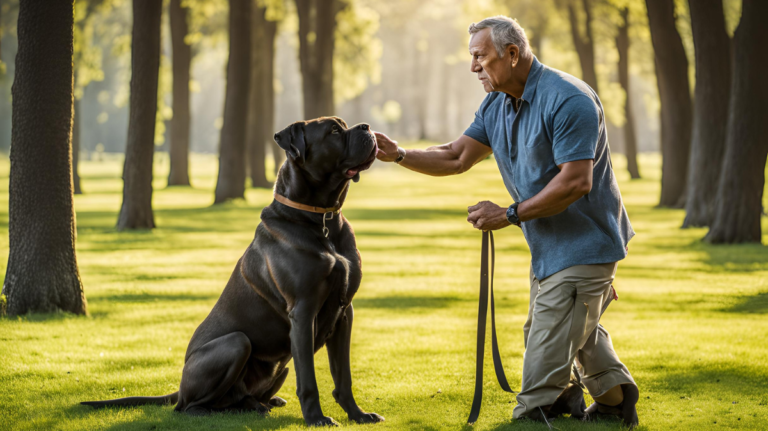Training an Akita requires patience, consistency, and understanding. Akitas are known for their strong-willed personality, so it’s crucial to establish yourself as the leader early on. Building trust and respect between you and your dog can set the foundation for successful training.

Key Takeaways
| Tip | Description |
|---|---|
| Start Early | Begin training as early as possible to establish good habits. |
| Consistency is Key | Keep commands and rewards consistent for effective learning. |
| Patience is Essential | Akitas may take time to learn; patience prevents frustration. |
| Use Positive Reinforcement | Reward-based training encourages desirable behavior. |

Understanding Akita Behavior
Before starting any training, it’s vital to understand Akita behavior. Akitas are naturally protective and loyal, but they can be aloof or reserved with strangers. Recognizing these traits can help tailor a training approach that works for you and your Akita.
The Importance of Early Training
Early training helps in molding the behavior of your Akita. Puppies are more adaptable and open to learning new commands. Introducing basic commands during this stage sets the groundwork for future training sessions.
Basic Commands for Akitas
Sit
Teaching your Akita to sit is one of the foundational commands. Use treats to motivate your dog during the process.
Stay
The “stay” command is crucial for safety. Gradually increase the distance and duration to strengthen this command.
Come
A reliable recall command can be a lifesaver. Practice frequently in a variety of environments.
Heel
Training your Akita to walk beside you without pulling is important for enjoyable walks.
Socializing Your Akita
Socialization is key to ensuring your Akita behaves appropriately around other dogs and people. Introduce your Akita to a wide range of environments and social situations from an early age to promote calm and confident behavior.
Akita Puppy Training Techniques
When training a puppy, it’s essential to use short, engaging sessions. Puppies have limited attention spans, so keep training fun and interactive. Use rewards generously to reinforce positive actions.
Obedience Training Essentials
Consistent and structured obedience training helps in managing your Akita’s behavior. Establish clear rules and reinforce them consistently to promote obedience.

Positive Reinforcement Strategies
Positive reinforcement is particularly effective with Akitas. Using treats, praise, and play rewards for desired behavior can motivate your Akita to learn commands joyfully and eagerly.
Leash Training for Akitas
Leash training is crucial for any Akita. Start indoors and gradually introduce distractions. Use a reward system to encourage loose-leash walking.
Addressing Aggression in Akitas
If your Akita shows aggression, it’s essential to get to the root of the behavior. Understanding what triggers the aggression can help adjust the training approach effectively.
Housebreaking Your Akita
Housebreaking is a critical part of training. Establish a routine and reward your Akita for showing the right behavior. Be patient and consistent, as accidents can happen.

Training Challenges Specific to Akitas
Akitas can be stubborn and independent, so challenges are common in training. Tailoring your approach to accommodate their unique traits can aid in overcoming these challenges.
Advanced Training Techniques
Once the basics are covered, you can progress to more advanced skills, such as agility or tracking. These can keep your Akita mentally stimulated and physically active.
Nutrition and Training
Proper nutrition is vital for health and energy levels in Akitas. A balanced diet ensures your Akita has the stamina and focus needed for productive training sessions.
Importance of Consistency in Training
Consistent commands, routines, and rewards help reinforce training. Consistency reduces confusion for your Akita and builds confidence.

Common Training Mistakes
Avoid these common pitfalls:
- Inconsistent commands
- Harsh discipline methods
- Overly long training sessions
Using Technology in Akita Training
Technology like training apps and smart collars can assist in tracking progress and maintaining training schedules.
Choosing the Right Training Tools
Selecting the right tools like leashes, harnesses, and training treats is essential for effective Akita training.
Final Thoughts
Training an Akita requires dedication, time, and effort, but the result is a well-behaved, loyal companion. By understanding their unique traits and employing effective training techniques, you can foster a harmonious relationship with your Akita. Always remember the value of patience and positive reinforcement.

FAQ
How long does it take to train an Akita?
Training duration varies but consistency and patience are key to success.
What’s the best age to start training?
Start training as early as possible, ideally when your Akita is still a puppy.




